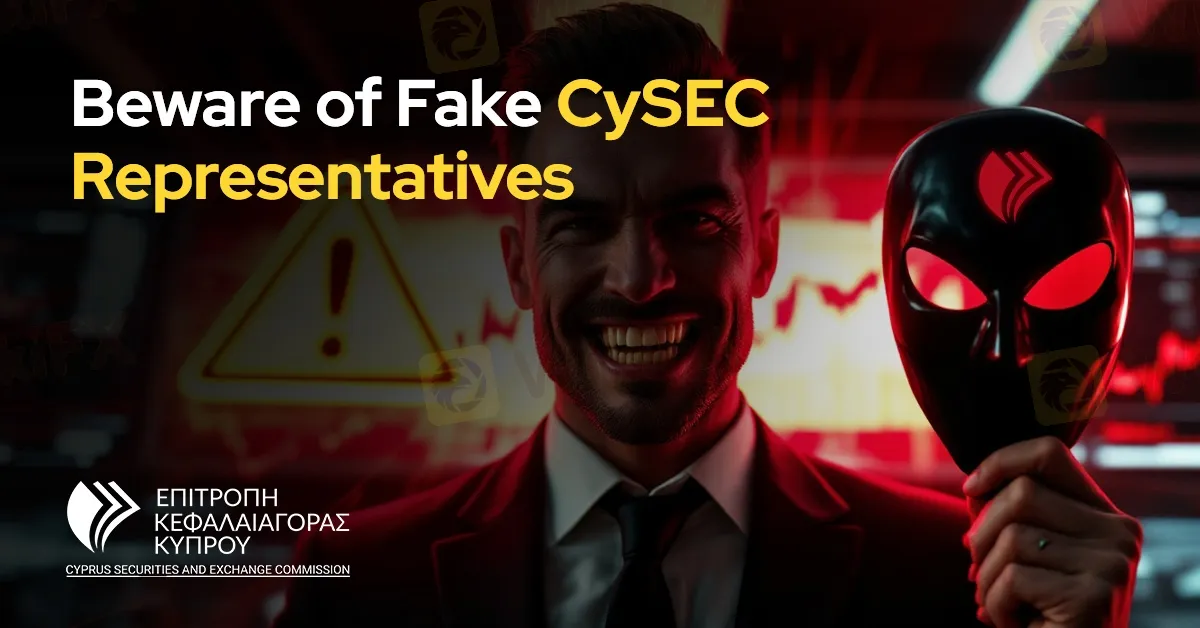Beware of Fake CySEC Representatives
abstrak:The Cyprus Securities and Exchange Commission (CySEC) has issued a warning regarding deceptive practices on public review websites, including TrustPilot and Google Business, where users have reported fraudulent activity. CySEC revealed that certain individuals are impersonating CySEC officers or representatives, contacting investors and demanding fees in exchange for facilitating the recovery of investment losses tied to CySEC-regulated firms.

The Cyprus Securities and Exchange Commission (CySEC) has issued a warning regarding deceptive practices on public review websites, including TrustPilot and Google Business, where users have reported fraudulent activity. CySEC revealed that certain individuals are impersonating CySEC officers or representatives, contacting investors and demanding fees in exchange for facilitating the recovery of investment losses tied to CySEC-regulated firms. This fraudulent activity has been on the rise, with scammers primarily using email and fake online profiles to pose as CySEC representatives.
In response, CySEC has urged the public to be vigilant. It emphasises that the organisation never initiates contact with individuals via unsolicited calls, nor does it request personal or financial information from investors. CySEC also confirmed it has no mandate to collect fees from investors or to appoint representatives to act on its behalf. This stance is part of CySECs broader mission to protect investors from potential scams and misinformation.

To proactively address these risks, CySEC uses advanced social media monitoring tools that scan posts in real-time across multiple languages. These tools allow the regulator to detect and respond to false or misleading posts from financial firms and “finfluencers,” individuals who promote financial services on social platforms. Through this monitoring, CySEC can quickly identify and address posts that may mislead or endanger investors.
For the publics safety, CySEC encourages all individuals to verify the authenticity of any communication claiming to be from the agency. Investors can confirm the legitimacy of such messages by reaching out to CySEC directly via their official email, info@cysec.gov.cy, before responding or taking action. CySEC also advises the public to report any suspicious activity to the organisation.
Importantly, CySEC clarified that its email addresses always end with “cysec.gov.cy” but noted that scammers may sometimes mask their email addresses to appear similar to official accounts. As a safeguard, CySEC reminds the public to double-check these details and not to trust any claims made by individuals asking for fees, regardless of how legitimate the communication may seem.
Furthermore, CySEC clarified that it does not authorise or oversee any form of class action, compensation schemes, or payment transactions between individuals or organisations. In addition, CySEC does not endorse, verify, or engage in any form of collective compensation or recovery actions.
With this warning, CySEC reinforces the importance of caution and due diligence for investors. The regulator encourages the public to avoid engaging with unsolicited communication or transferring funds to anyone claiming to represent CySEC. By remaining vigilant, investors can protect themselves from falling victim to these scams.

Broker ng WikiFX
Exchange Rate
